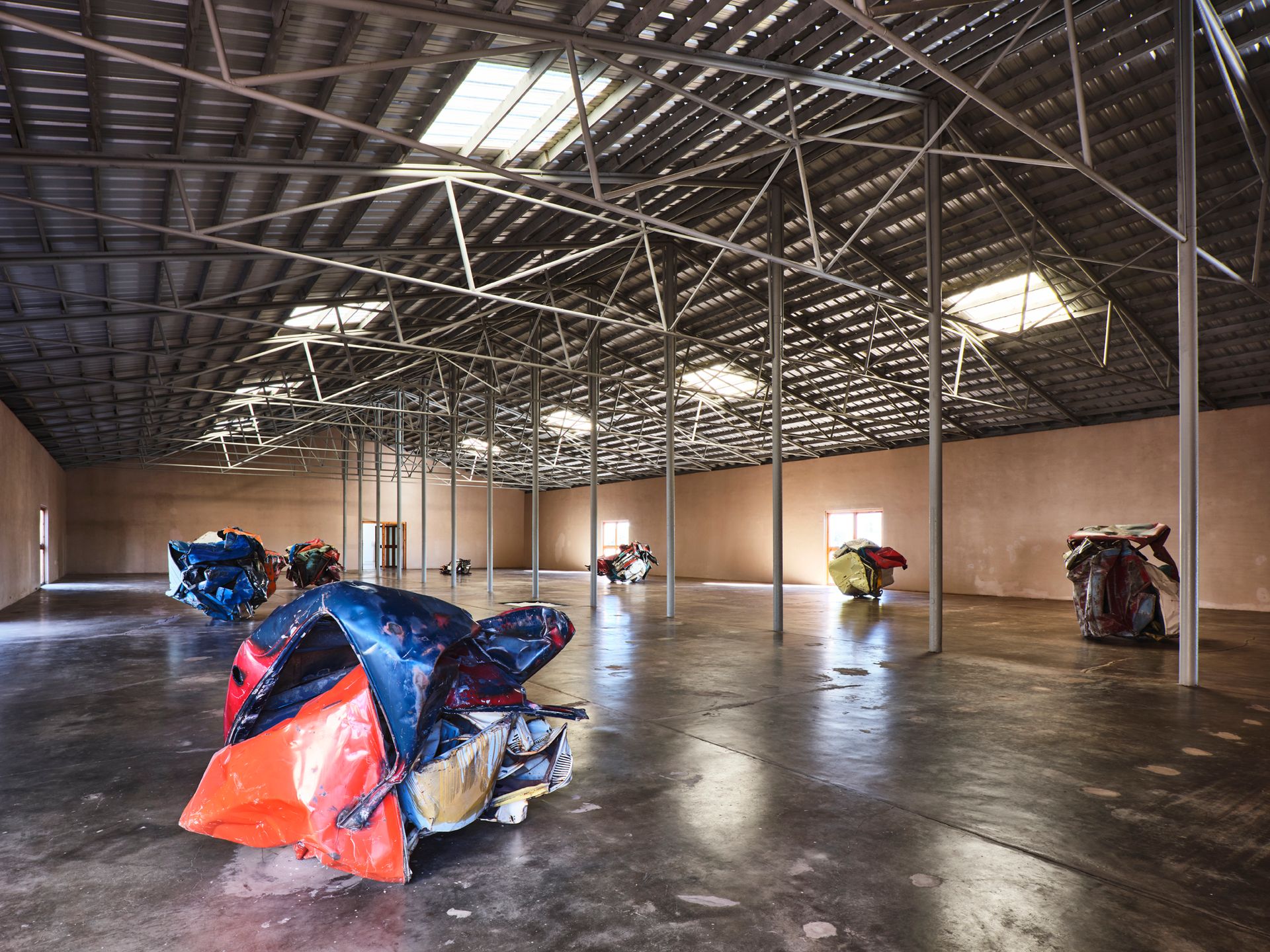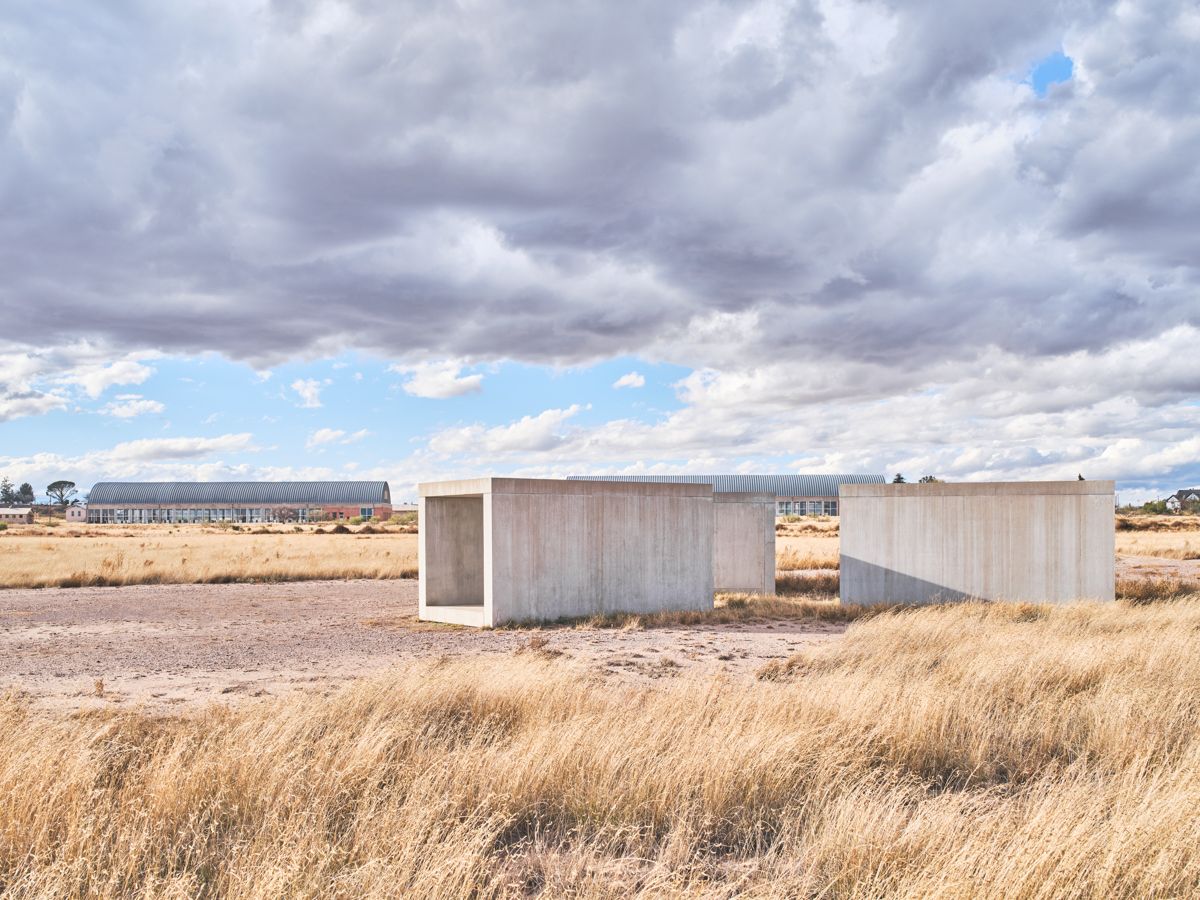The Chinati Foundation, the contemporary art museum founded in Marfa, Texas by the artist Donald Judd, has received a $1.25m Start Small grant from the Covid-19 relief fund started by Twitter and Square CEO Jack Dorsey. The funding will support preservation efforts at the arts centre, and allow Marfa to focus on job training for young women in West Texas and the recruitment of young women of colour to its internship programme.
Last spring, Dorsey pledged $1bn of his Square stock (around 28% of his total wealth) to immediate global pandemic relief, after which the focus of his Start Small fund would shift to health and education for young women, and promoting a universal basic income to reduce wealth inequality. “Jack Dorsey has come back to Marfa over the years. He has a presence here,” says Chinati’s director Jenny Moore. “But in this year of great pause, the elements have not paused in their effects on our buildings and art and land. So, to have this quick infusion of such tremendous support enables us to tackle really important issues with a fresh perspective.”
“Chinati is an institution established to support permanent large-scale installations in perpetuity,” Moore adds. “That’s a long-time horizon, and many of our priorities right now are focused on restoration, which might not seem to be the most exciting aspects of a museum’s mission or the kind of thing that generates a lot of interest in new ways of giving.”

The John Chamberlain Building, interior installation view Courtesy The Chinati Foundation. Photo: Alex Marks
The grant money will be used to restore the exterior courtyard wall for the museum’s John Chamberlain Building in downtown Marfa, creating an opportunity to hire young women from far West Texas to be trained in traditional—as well as Judd specific—adobe techniques. Unique throughout Marfa, and defining Chinati sites and the artist’s private live-work spaces of the Judd Foundation, the walls’ exposed adobe bricks and cement mortar have deteriorated over four decades of harsh desert climate. “Judd’s unconventional use of traditional materials creates a very distinct design presence, but has its own issues in terms of sustainability,” Moore says. The adobe restoration is part of the larger renovation of the John Chamberlain building, the 23,000sq. ft home of the world’s largest installation of the artist’s work. Next week, Chinati begins the construction phase on this project, slated for completion by summer 2022, which is also supported by a capital campaign to fund masterplan projects.
“For Judd, the land on which Chinati is situated was as important as the art installed in its architectural spaces,” Moore adds. “We have more than 300 acres of high desert grasslands that we are responsible to preserve and to protect as much as the art and buildings.” To that end, the Start Small grant will also support a programme to hire young women from the community for specialised native grassland restoration at Chinati, as well as “training so they can go out and create their own landscape and land management businesses in Marfa and West Texas”.
Finally, while Chinati has long offered one of the few paid internships in the arts, the recent grant will subsidise a $15 per hour wage for Chinati’s interns, along with full benefits and housing on museum grounds. “We will focus particular outreach on recruiting young women of colour into our programme, and for it to be financially sustainable,” says Moore, who interned at Chinati as a graduate student in 2004. “There is a reckoning in the art world right now about equality, racial justice and diversity. It’s our responsibility at Chinati to develop a seat at the table for those who’ve not been traditionally represented in the museum field.”


